Whether a story takes place in a dystopian near-future, a far future somewhere in the stars beyond Earth, or a fantasy world that is both the distant past and distant future of our planet, people like to subject one another to tests. Even more than that, people—Wise Ones, mentors, faction leaders—enjoy making those tests be about something completely different than what they’re supposedly testing for. All the better to get a genuine reaction out of the person being tested, and making for a compelling story about the prizes that lay beyond these trials, and the real sacrifices it takes to reach them. Read on for five exams, measured in everything from 25 questions to infinite droplets of water, that are covers for the true tests of character.
Some spoilers for certain titles, though not for anything that’s new—that’d be like giving away the answers before you take the test, and where’s the fun in that?
Faction Aptitude Test (Divergent by Veronica Roth)
Buy the Book
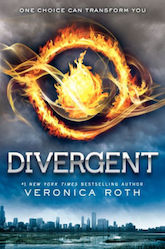

Divergent
So… if you’re brave, you take a knife, makes sense. If you’re kind, you take… cheese? OK, maybe because you’re planning on feeding someone else, we’re still following along. Submitting to a rabid dog means you’re curious and intelligent (or have common sense, but sure), while saving a kid from said snappy pup makes you selfless and/or brave? Oh, and then there’s an unfortunately burnt guy you’re supposed to not help? Seems like there would be an easier and waaay less symbolic way to test for which virtue you have a higher percentage of. Or, you know, take that new Big Five personality test with the nifty pentagon results.
Of course, Divergent’s aptitude test isn’t really about sorting kids into factions, it’s about figuring out who doesn’t fit into one of the five slots.
British Values Assessment (The Test by Sylvain Neuvel)
Buy the Book
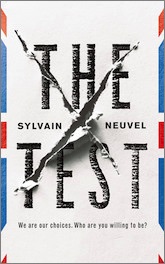

The Test
If Idir Jalil fails the citizenship test that he’s spent months studying for, he will forfeit not only his own security, but that of his wife Tadir and their two children. Twenty-five questions separate his fate between continuing on as a dentist living in London with his family, and immediate deportation. But Idir drilled himself on this knowledge, on knowing exactly what he needs to in order to belong—it’s only twenty-five questions.
Until, just a few pencil scratches in, terrorists descend upon the immigration building and take hostages. When kind, well-meaning Idir attempts to intervene, he is instead forced to make an unthinkable call: which stranger lives, and which stranger dies? A Black Mirror-esque cautionary tale on what it means to be a citizen in the near-future, The Test asks one simple question: How do you value a life when all you have is multiple choice?
The Testing (The Testing by Joelle Charbonneau)
Buy the Book
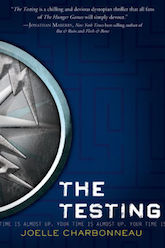

The Testing
At the peak of the dystopian YA boom, no idea that could reasonably be put through a dystopian filter was off-limits. The Bachelor? Yep. A “Cure” for love? You betcha. SAT tests? Hoo boy, yes. America’s penchant for standardized aptitude testing apparently cannot be erased from existence, even if the country has become the United Commonwealth thanks to a seven-stage war leading to worldwide devastation. In this radically reformed society, education is available to a select few via the foreboding University, and the Testing that grants or denies admission is an actual matter of life-and-death. And while you can study for the Testing—in fact, many a child spends their entire adolescence preparing, only to not even get the chance to sit for the exam—the real trial is not about having the right answers.
Sure, there’s a Q&A portion; even in dystopia, there are multiple-choice tests. In this case, it’s actually a smart infodump in which protagonist Cia and her fellow Testing candidates must correctly supply information about the aforementioned Seven Stages of War. But that’s not all. Raise your hand if you remember when the SAT went from 1600 points to 2400 by adding a written essay component—that is, tacking on an entire third that depending on your ability to write a persuasive essay either gave you an easy boost or endless stress about scoring high enough to get into your favorite college. Now imagine that instead of a surprise essay to prepare for, it’s a Saw-like room of deadly experiments, followed by a Hunger Games-esque quest back to Tosu City with only your wits and whatever random items you brought from home—oh, and your every move is being recorded so that the Testers can fine-tune your trials. Standardized, these tests are not.
Battle School Final Simulation (Ender’s Game by Orson Scott Card)
Buy the Book
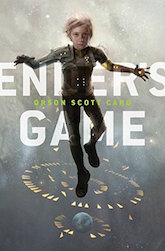

Ender's Game
Command School is full of all manner of mindfucks, from the nihilistic and unwinnable “Giant’s Drink” game to brutal battle simulations meant to prepare young Ender and his cohort for real battle against the alien Formic race. But as precocious Ender discovers, or creates, loopholes—like killing the giant instead of having to choose between two cups of poison—the games adapt to his cold-blooded choices, and his instructors exploit that viciousness in new and increasingly cruel experiments.
This negative feedback loop gets so bad that by the time Ender is embarking on his final test of Battle School, a large-scale simulation in which he wages war with the “buggers” above their own homeworld. Nearly crushed under the abuse of Command School and thinking this is his perfect chance for expulsion, Ender ruthlessly sacrifices his ships to blow up the homeworld, a kamikaze solution for a simulation he believes is unwinnable. Except that instead he discovers that he was actually fighting in the real war, which he has won—but at the cost of the lives of his soldiers, and by committing genocide against the entire Formic race. Gives new meaning to the term pass/fail.
Wise One Training (The Gathering Storm by Robert Jordan and Brandon Sanderson)
Buy the Book
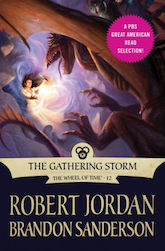

The Gathering Storm
Is wisdom dipping your finger into a bucket to transfer water from one pail to another drop by agonizing drop? At first Aviendha thinks it must be, as this inscrutable and tedious task is assigned to her by the Wise Ones as some sort of bizarre punishment. But as her patience grows more tattered and her skin more pruney, she finally snaps. Confronting Bair, Amys, and Melaine, she gives them an ultimatum: they tell her, straightforwardly, what it is they want her to do, or they send her away. And instead of another punishment… she gains acceptance into their ranks:
“No woman is ready to join us until she has declared herself ready,” Amys continued. “She must present herself as our equal.”
“A punishment is not a true punishment unless you accept it, Aviendha,” Bair said, still smiling. “We thought you ready weeks ago, but you stubbornly continued to obey.”
“Almost, I began to think you prideful, girl,” Melaine added with a fond smile.
Turns out wisdom is deciding that you are ready instead of being told you are.










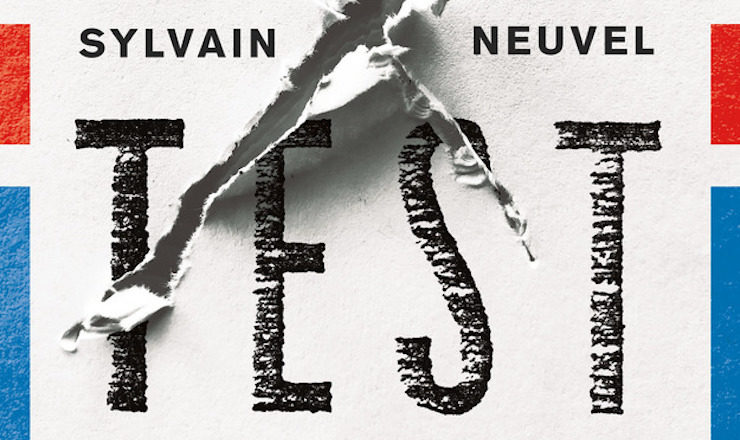
How about the test in Willow? The wizard looking for a student stretches out his hand and asks the candidates which finger the magic comes out of. The candidate who chooses one of their own fingers instead passes the test.
Tangentially, there’s the thing that you think isn’t a test but really is. In the Unschooled Wizard series by Barbara Hambly, organized teaching of magic was stamped out generations ago. Somebody is kidnapped and forced to work for somebody else by a self-trained wizard in hiding. The kidnap victim is kept under control because they have been poisoned, and must remain within a certain distance of a fixed object or the poison will activate. At one point they just give up–what they were kidnapped to do seems impossible–and walk away to die. And that’s when they discover something that was forgotten when the schools of wizardry were destroyed: the poison has a different effect on people who were born with the talent for true wizardry rather than a few eye-catching cantrips. You can become a master of magical theory (which in this world requires a lot of math), you can push past cantrips to do more if you have the talent, but the only way to unlock your full potential is to take the poison. If it doesn’t kill you, you’re a wizard, whether you have a clue what you’re doing or not. (But if you are physically weak it may kill you anyway.)
Wise One Training sounds similar to the tests at poets school in Daniel Abraham’s Long Price Quartet (and the preceding short story that I can’t remember the name of). Passing test one is to refuse to put up with the abuse of being a novice, and then they be put in charge of abusing the newbies, so that they can pass the test. Passing test two is to refuse to abuse the newbies.
Unschooled Wizard Sun Wolf and Starhawk, according to my copies.
“Examination Day” by Henry Slesar (filmed as an episode of the 1980s Twilight Zone, as well).
The Kobayashi Maru test from Star Trek
@3: The Unschooled Wizard is the title of the SFBC’s omnibus of the first two novels; such titles, be they endorsed or not, have some stickiness to them.
Gom Jabbar anyone?
Edit:: ha, that was before scrolling down!
The Last Starfighter
The G.O.A.T. test in a meta sense. In-universe, it determines your occupational assignment in you Vault. In the meta-mechanics of the Fallout series, it sets your starter attributes and skills. It also has a secondary alternative use, at least according to the people of Covenant (renamed here the SAFE test), used to suss out synthetic infiltrators from natural humans.
No Gom Jabbar from Dune?
Genesis by Bernard Beckett
What is society? What is humanity? What does it mean to be a person?
Placement Test, by Keith Laumer.
The candidate goes in for his placement test only to be told that he has been relegated to unskilled labor, and decides to do something about it …
”Cake or Death?”, anyone?
If I remember it right, the Master Doorkeeper of the magic school in A Wizard of Earthsea requires students (or at least Ged) to speak his true name if they wish to leave the school. Turns out, using magic is not the way.
The written’s not so bad, but the practical exams in Red Rising are the stuff of nightmares.
There was also a short story I read (can’t remember the name, it was in an anthology at the school library) where, instead of a test, children are sent to see an android when it’s time for them to pick their careers. The android is the perfect, understanding mentor figure (I’m guessing a Dumbledore lookalike). I think there may have also been drugs involved to make the kids find their inner truth and spill it.
The main character is absolutely terrified when his turn comes. But, when he meets the android, the drugs make him certain the android doesn’t just already know, he understands.
So, the kid pours out his heart: Destruction, mass murder, terror, crushing and grinding his enemies into dust. He feels happy relief finally getting it out.
And the android nods understandingly, enters the program codes, and sends the kid off to be trained.
SAT tests? Hoo boy, yes. America’s penchant for standardized aptitude testing apparently cannot be erased from existence, even if the country has become the United Commonwealth thanks to a seven-stage war leading to worldwide devastation. In this radically reformed society, education is available to a select few via the foreboding University, and the Testing that grants or denies admission is an actual matter of life-and-death
Robert Westall went there decades ago in Futuretrack 5 – you sit your E-level exams at age 20. Pass, and you live a life of comfort as an Est. Pass really well and you’ll help run the society as a Tech. Fail, and it’s the bus for you into the cordoned-off inner cities as an Unnem. The title refers to the jobs made available: Futuretrack 1, pop music; Futuretrack 2, paid fighter; Futuretrack 3, playing arcade games; Futuretrack 4, theft; Futuretrack 6, sex worker; Futuretrack 5, as chosen by the narrator, is motorbike racing.
In the Discworld books (Lords and Ladies), there’s a test.
And then there’s the test in Fight Club (the movie) where you pass by ignoring their repeated and increasingly obnoxious attempts to tell you you’ve failed.
@18/ theclapp – just about everything Granny Weatherwax does is a test. Sometimes herself, sometimes other people, sometimes both. And when it’s other people, like as not they don’t even realise it. Only the smart ones realise it, and usually don’t figure out the true test until way after (Tiffany Aching, I’m looking at you).
The Wise One training sounds like the Magician Assembly training that Pug went through in Feist’s Magician: Master (2nd book of the Riftwar).
“This is no longer my place.”
The Wise One training reminds me a little bit of the Star Trek TNG episode (I think it was Lower Decks) where the one formerly disgraced ensign basically has to stand up to Picard who is telling her all the reasons she isn’t worthy, and that is what shows she is ready.
Honestly, I always hated that kind of trope because it seems so unfair, lol. How do you know if you’re in a story where this trope is being played straight, or not? I mean, I get it, the point is to know when humility is warranted and when standing up for yourself and recognizing your own strength is warranted.
Interestingly, Nyneave’s Aes Sedai test is kind of a subversion of this whole thing. She does in fact ‘fail’ the test pretty spectacularly (and those in charge view it as a failure) but I love her epic take down of the whole system and why it’s dumb.
I really, really wish this had made it into the movie, but in TLJ, Luke plays a similar trick on Rey like this – in which the test is actually NOT to do nothing in the face of a raider attack even though that’s what he is claiming she should do, and what ‘real’ Jedi would do. (In fact, thematically it’s quite similar to Nyneave’s reasons for ‘failing’ the Aes Sedai test for being too emotional).
I like the test in WITCHES ABROAD, I think, where Granny Weatherwax has to choose which one of the zillion reflections is her true self. She asks, ‘is this a trick question?’ and slaps her hip. “This one”. I wish she’d been around to counsel Alec, I think, in Larry Niven’s “All the Myriad Ways”.
Another test that isn’t what it looks like is one in Heinlein’s SPACE CADET, where you’re supposed to drop toothpicks or some such into a milk bottle blindfolded. Of *course* there won’t be a camera to check on whether you’re cheating or not, right?
@21/Lisamarie: “Honestly, I always hated that kind of trope” – Me too. It’s twisted and manipulative, and I prefer people to be honest and outspoken.
“Lower Decks” is particularly bad because it has two of these tests. When Sito doesn’t get that she’s being tested, Worf “helps” her by inventing the gik’tal challenge.
@22: There was no mention of a camera; as I read it, a good result was in itself a proof of cheating. I don’t know Annapolis nearly well enough to guess how much of the training in Space Cadet mirrors RAH’s experiences, but this sounds much like the heavy-on-the-honor principles I’ve read about for that time (RAH was class of 1929). Oh, and it was beans; I suspect toothpicks would have been even harder because they’re too light to fall straight down — too many would fall at enough of an angle that they wouldn’t fit in the bottle.
@13 I’ll have the chicken and white wine, please.
And a tray; no wait, that is a different sketch.
Both of these kind of tests (which fall into two broad catagories – the ones where you know you’re being tested, not just what you think you are being tested on, and the tests where you don’t even realise you are being tested) is that knowing the truth invalidates the test. The observer literally affects the results, as the testee behaves differently producing biased results.
The problem I see with this not that testing this way is underhand and manipulative, but that people will quickly figure out what was happening, so that people that aren’t “ready” give the “correct” answer(s) to get the progression they want, when they aren’t really meeting the criteria.
It’s like Kirk and kobayashi maru scenario. I feel like he failed twice in that, after taking it three times. First because he never really accepted that there’s a no-win situation, and second because he didn’t work out the true nature of the test, in essence failing because he was so committed to winning.
Or the divergent test. Everyone knows the qualities that will recommend you for each faction, so everyone can “game” the test for the result they want. So even with it being a test for divergents, given being factionless is such a horrible option that divergents would be motivated to decide on a faction they want and perform the actions that indicate that action. It’s such an odd setup I was sure the big twist would have been that the “test” was actually a subtle form of mind control, detecting tthe strongest traits and matching to a faction (as advertised), but then (here comes the mind control part) enhancing the traits for the matched faction and suppressing the traits for the other factions, forcing them to conform to the faction archetype. The divergent would be the ones resistant to the mind control. It seemed obvious to me that the faction system was an allegory for the clique-system that seems to exist (to greater or lesser extent) in most high schools, but there’s a myriad of reasons why those are transient. Since it seemed my hypothesis was wrong, the author never really explained how the society overcame those limiting factors for so long.
Compare both the above to Miles Vorkosigan’s experiences in his Officer Training. There the trainers are up front about putting the trainees through “real-life” scenarios where there is a certainty they will (through their own or a follow cadets’ mistake) “die” during at least one simulation during their training. When you die, you get “awarded” a black armband, the more black armbands you wear, the more unlucky/incompetent you are. Miles doesn’t believe in no-win situations, and manages to outwit his trainers then compensate for his fellows, partly because his knows it’s a test and looks to the trainers for clues. He knows “winning” the black armband is a test of character, but he’s so committed to winning he refuses to take the test (he makes it to the end without “dying” once, if I remember correctly). He doesn’t encounter the no-win scenario until he’s finished the academy, and then he has to sacrifice the life he thought he’d lead to “solve” it.
Instead I guess it became to sorts of tests, the first Miles sets himself, to excel without alienating everyone, and second for everyone else on how to deal with Miles. I guess the instructors kind of failed with that, but LMB writes of his fellow students that the smart ones started to gravitate towards him, and then (as his “failure” to win an armband caused the instructors to increase the difficulties he’d be facing in each scenario, so he’d become a magnate for unlucky coincidence and accidents) the smartest ones kept their distance. Kind of a good lesson to learn, considering his later career…
@26/WillMayBeWise: I’ve always found that the Kobayashi Maru story didn’t quite fit the Kirk from the TV show, who had been a very serious young man (“Serious? I’ll make a confession, Bones. I was absolutely grim”). Also, he encountered quite a few no-win scenarios prior to TWOK. But regardless of that, I don’t agree that “he didn’t work out the true nature of the test”. He did work it out, he just didn’t accept it. And apparently his superiors were okay with that, because they gave him “a commendation for original thinking”. The whole story is weird.
In Gordon R. Dickson’s Nebula-winning “Call Him Lord” (1966), the callow and irresponsible heir to the Galactic Empire is touring Old Earth in the company of a bodyguard whose family has similarly served many generations of emperors. The young man doesn’t know this is his final examination on his readiness to be the next emperor, and the only grades are pass — or fail.
In Jack Vance’s “The New Prime” (1951), the current Prime of the galaxy has devised an examination to choose his successor, involving candidates living several virtual lives under stressful conditions. (Thus, the story contains a half dozen or so shorter stories; Robert Silverberg called it “a miracle of compression“.) But the ideal future Prime may be the candidate who fails the test …
Great cites from further back in our genre’s history.
The ultimate example of the sort of test awareness described in @26 is probably Kornbluth’s “Theory of Rocketry” (1958), in which everybody has to take periodic psychometric tests which everybody knows everybody lies on but nobody discusses in public; there’s a scathing paragraph on the mindset that must be adapted before taking the test. A minor character ruins himself by answering the questions truthfully (this is a primitive paper test, not situational); the viewpoint character is ruined when an offhand remark about the unspoken truth gets conveyed to the authorities by a climber. It may be a bit antique in transporting 1950’s normalism wholesale to the future, but the critique of the idea that it’s easy to assess someone else’s virtue still stands.